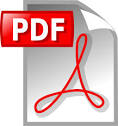IMPLICATIONS FOR EFFECTIVE ENFORCEMENT OF EDUCATION LAWS IN THE ADMINISTRATION OF SECONDARY SCHOOLS
Nwabueze, Akachukwu I. (Ph.D.)
Department of Educational Foundations, University of Nigeria, Nsukka
&
Iheoma, Chibuzo C.
Department of Educational Management, University of Port Harcourt, Rivers State
Abstract
This study investigated the implications for effective enforcement of education laws in the administration of secondary schools in South East, Nigeria. Four research questions and four hypotheses guided the study. The research design was descriptive survey. Population of the study comprised all the 1,050 public senior secondary schools in South East, Nigeria with 1050 principals. A sample size of 250 principals was drawn from a population using the stratified random sampling technique representing 23.8%. The instrument used was questionnaire titled “Implications for Effective Enforcement of Education Laws in School Administration Questionnaire (IEEELSAQ)”. The instrument was validated and reliability test was carried out using test re-test method and the results of the tests were correlated with Pearson Product Moment Correlation, which yielded an index of 0.86. The research questions were answered using mean scores and standard deviation, while z-test was used to test the hypotheses at 0.05 significant level. The study revealed among others that, teachers’ acts of misconduct that can be curtailed by the enforcement of the legal doctrine of vicarious liability include: involvement of staff in unauthorized collection of money from students, staff involvement in assaulting students or fellow staff, staff involvement in the harassment of students sexually, and involvement of staff in forgery/mutilation of school official documents. The legal implications of the principals’ role performance in the enforcement of students’ fundamental rights in the administration of secondary schools include: suing principal that is responsible for indisciplinary actions in school if he violates the fundamental rights of the personnel in his school, and empowering principals to report cases of professional misconduct of staff to teachers’ disciplinary committee (TDC) otherwise sued for violation of fundamental human rights. Based on the findings, researchers recommended that teachers’ acts of misconduct should be curtailed by the enforcement of the legal doctrine of vicarious liability in the school system for effective administrative performance in the schools.
Download FULL TEXT
